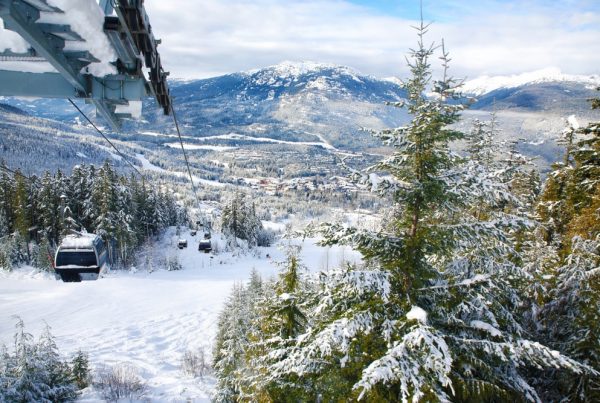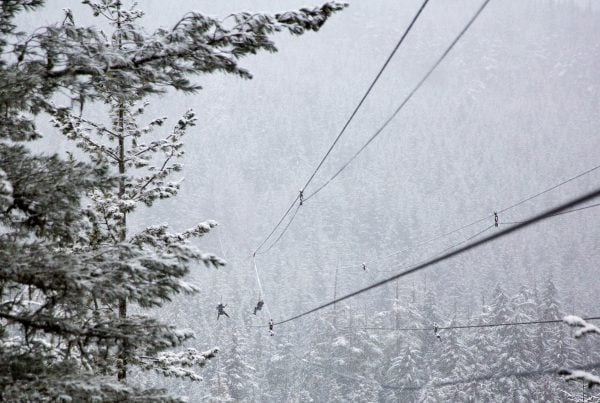According to recent statistics, more and more homeowners are planning to rent out their vacation rental properties or second homes.
One of the biggest factors that attracts people to the idea of purchasing a vacation rental property is the idea of having a passive income stream.
If you live in Whistler, BC, and are interested in renting out your luxury Whistler vacation home, there’s one thing that you will need to consider before taking the plunge: vacation rental insurance for owners.
In this article, we will be discussing what vacation rental insurance is, how much it costs and how it can benefit you.
1. What is Vacation Rental Insurance?
Insurance for vacation rentals protects the owner of the property against potential liability and damage. It is strictly for vacation home owners who have rental properties that they rent out daily or monthly. A rental home has 3 occupancy states, in general: unoccupied, occupied by a renter, and occupied by the owner. A vacation rental home will cover all 3 states throughout the course of a year. Because it provides extra coverage, it costs more than a typical homeowner’s policy.
If you have a second home that you rent out a few times a year only to offset the housekeeping costs, your insurance provider may still consider it to be a rental rather than a second home, which would usually only require a homeowner’s policy. As long as you rent out a property for money, it is considered a business.
2. How Does It Work?
There are 3 primary aspects of vacation rental insurance: liability, property, and income. Your policy of choice should include all three, but may require more.
Vacation rental liability insurance covers personal injuries that occur within your property. It covers your renters, their guests, and other people in your rental. Even if the law finds that you were responsible for an accident causing injury and damage to personal property, this policy will still most likely cover you.
Not only does it cover injuries such as slips on bathtubs and falls on stairs, but its coverage also extends to your amenities as well. If providing bicycles to your guests is included in your rental, for example, then bicycle accidents will also be covered under the policy.
Your property itself needs protection as well, both its structure and contents. The insurance policy should cover you for any damage to your property, such a house fire or a tree falling on the property.
It should also reimburse you for all the contents inside the rental. Most guests are considerate, but you can rest easy when you know you are protected.
You’re earning money from it, so the insurance policy should also cover any loss of income. This could be for any reason, such as the aforementioned damages or a flood from a neighbouring property. Something completely unrelated to your property can cause damage and take it off the rental market for a period of time ranging from days to months. Don’t risk losing out on your rental revenue and make sure you get loss of income insurance.
If the property is in an area where flooding and earthquake are high risks, it would also be wise for you to find a policy that covers natural disasters. Most of the time, this is not included in vacation rental insurance because natural disasters are unpredictable events. Depending on your provider, they may allow you to buy this as an add-on option to your insurance policy.
3. How Much Does Vacation Rental Insurance Cost?
For insurance providers, a vacation rental home has higher risks because of the renters. If you rent it out on a daily basis, the risks are even higher because the home would accommodate different guests each month.
Because of this increased risk, vacation rental insurance typically costs about 2 to 3 times the cost of your usual homeowner’s policy per year. It may get as expensive as $1,500 to $3,000, depending on several other factors. If the amenities in your home carry higher risks, such as swimming pools, hot tubs, and fireplaces, you may see an even higher insurance cost.
In addition, the location of your Whistler accommodation will factor in as well as the total value of your home. If the rental’s structure and contents are more expensive to replace, your policy will be more expensive.
The costs will also include your deductible; the higher it is, the lower your premiums. Your choice of coverage can also increase the amount that you pay for insurance.
4. Do You Need to Get Insurance for Your Whistler Rental Home?
Whether or not you need to get insurance for your Whistler luxury rental will depend on who is financing your home. In general, a majority of lenders will require you to get vacation rental insurance.
However, if you paid for the property in cash, the laws do not state that you need to get it. Even though this decision is entirely up to you, we highly recommend getting it to protect yourself and the property in case of any emergencies.
5. How to Get Vacation Rental Insurance for Owners
All it takes to obtain rental insurance for your Whistler vacation home is 3 easy steps: research providers, talk to an agent, and gather the paperwork.
Find out which providers in your area offer this type of insurance and the coverage you’re looking for. Talk to an insurance agent and discuss the coverage in full. A good vacation rental insurance plan should be customizable according to your needs and budget.
At this point, do not hesitate to ask any questions, because you need to fully understand and make sure you are being protected in case anything goes wrong.
The last step before applying is gathering the necessary paperwork. This would include your identification, proof of ownership, and property value. You may also need to submit a copy of your insurance policy if the property has been previously under another insurance policy.
Interested in Turning Your Whistler Vacation Home Into a Rental?
Aside from vacation rental insurance for owners, there are a host of many other factors you need to be mindful of.
Feel free to check out our other blog posts and guides today to learn how to manage your Whistler vacation home better.
If you have other questions, contact WVH Management today or visit our website for more information.




